WILDLABS groups like this one are where conservation tech community members from every career stage gather to ask questions, share resources, and network. If you're just getting started in your #tech4wildlife career, making a career change from the tech world into conservation, or you're a student finding your path in the field, the Early Career group wants to meet you!
Likewise, the Early Career group is an excellent place for our conservation tech experts to share opportunities and resources with a wide audience of people who will make a big impact in conservation in the coming years.
How can you get started in our Early Career group?
- Visit our Welcome Thread and tell us about yourself and your career goals!
- Drop into our Share Your Master's Project thread to ask questions, share your updates, get advice, and discuss your project goals with people who can help you make progress
- Network with our group's regular events like Happy Hour, launching later in 2022
The Early Career group is looking for an organizer for a 6-month period to plan networking events and help conservation tech students from around the world connect! If you're interested in volunteering as group organizer, email ellie.warren@wildlabs.net with a brief summary of your early career conservation tech experience so far, and with an idea for one event or activity you'd propose for the group. We hope to hear from you!
No showcases have been added to this group yet.
WILDLABS & Wildlife Conservation Society (WCS)
I'm the Bioacoustics Research Analyst at WILDLABS. I'm a marine biologist with particular interest in the acoustics behavior of cetaceans. I'm also a backend web developer, hoping to use technology to improve wildlife conservation efforts.

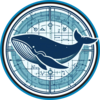
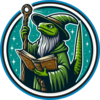
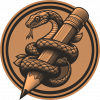
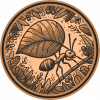
- 41 Resources
- 38 Discussions
- 33 Groups
University of Exeter
AI and Electronic Engineer interested in insect monitoring and conservation technology. PhD student at the University of Exeter!
- 0 Resources
- 3 Discussions
- 4 Groups
- @lawaii
- | he/him
Hi, I’m Lawaii, Mother Earth’s son. A biodiversity activist and conservation strategist walking alongside the small islands of the Sundaland Bio-ecoregion Hotspot
- 0 Resources
- 0 Discussions
- 5 Groups
- @Agripina
- | Miss
Frankfurt Zoological Society
As a wildlife conservationist, I am deeply committed to nature conservation, community empowerment, and wildlife research in Tanzania. I've actively engaged in community-based projects, passionately advocating for integrating local communities into conservation.
- 3 Resources
- 25 Discussions
- 6 Groups
- @carlybatist
- | she/her
ecoacoustics, biodiversity monitoring, nature tech



- 113 Resources
- 361 Discussions
- 19 Groups
- @TaliaSpeaker
- | She/her
WILDLABS & World Wide Fund for Nature/ World Wildlife Fund (WWF)
I'm the Executive Manager of WILDLABS at WWF

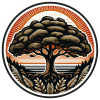

- 23 Resources
- 64 Discussions
- 31 Groups
- @bdmeuric
- | he/him
- 0 Resources
- 0 Discussions
- 4 Groups
- 0 Resources
- 0 Discussions
- 10 Groups
- @Frank_van_der_Most
- | He, him
RubberBootsData
Field data app developer, with an interest in funding and finance




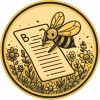
- 57 Resources
- 188 Discussions
- 9 Groups
Student at Texas A&M. Electronic hobbyist, audiomoth user
- 0 Resources
- 0 Discussions
- 5 Groups
Conservation Ecologist established in Belgium working in bio-accoustic and animal GPS sensor
- 0 Resources
- 0 Discussions
- 3 Groups
- @tcsmith
- | he/him
I am a conservation biologist interested in modeling social-ecological systems.
- 0 Resources
- 0 Discussions
- 11 Groups
The Smithsonian’s National Zoo & Conservation Biology Institute is seeking two Post-doctoral Research Fellows to advance research in the spatial ecology and conservation of bustard species with a special focus on...
11 November 2024
Frankfurt is looking for human-wildlife conflict field officer
12 October 2024
The Marine Innovation Lab for Leading-edge Oceanography develops hardware and software to expand the ocean observing network and for the sustainable management of natural resources. For Fall 2025, we are actively...
6 October 2024
The Fonseca Species Conservation Fund supports early career conservationists working on projects regarding threatened amphibians, freshwater fish, primates, small mammals, tortoises and freshwater turtles 'in urgent...
3 October 2024
Based in the EU
3 October 2024
The African Bioacoustics Conference!
18 September 2024
Announced Black and Indigenous Scholars Award in Mammalogy
16 September 2024
Climate Finance and Nature Based Solutions: An Ecohydrology Approach
14 September 2024
A long-term vulture monitoring and conservation project in Tanzania is looking for a Project Manager.
10 September 2024
Application are now open for Cambridge Masters in Conservation Leadership(October 2025 entry)
10 September 2024
Careers
The Grumeti Fund and RISE are now accepting applications for Session 2 of the WIF program.
10 September 2024
Drone Photogrammetry & GIS Introduction (Foundation) Course


Drone Photogrammetry & GIS Introduction (Foundation) Course
Drone Photogrammetry & GIS Introduction (Foundation) Course




Camera Trapping for Conservation
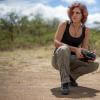

Camera Trapping for Conservation
Camera Trapping for Conservation
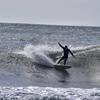
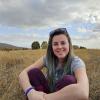














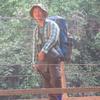



Introduction to Acoustic Monitoring

Introduction to Acoustic Monitoring
Introduction to Acoustic Monitoring















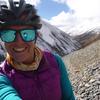
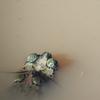
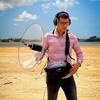

Introduction to Conservation Technology

Introduction to Conservation Technology
- 1 What is conservation technology and why does this field exist?
- 2 The conservation technology landscape: What tools define the field?
- 3 Innovation meets collaboration: The origin and future of conservation tech
- 4 The hidden costs of conservation technology: ethical and environmental harms
- 5 Challenges and opportunities: shaping the future of conservation technology
Introduction to Conservation Technology



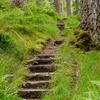
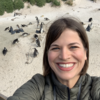





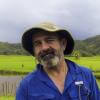






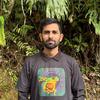

February 2026
July 2025
event
| Description | Activity | Replies | Groups | Updated |
|---|---|---|---|---|
| This is wonderful, thanks for sharing! |
|
Community Base, Early Career, Human-Wildlife Coexistence, Women in Conservation Tech Programme (WiCT) | 11 hours 15 minutes ago | |
| Hello WILDLABS Community, Ocean Science Analytics recently launched an ocean-focused course for those interested in learning how to... |
|
Geospatial, Conservation Tech Training and Education, Early Career, Earth Observation 101 Community | 5 days 23 hours ago | |
| Hi Aleksandra,Welcome! I'm also from a technical background (software development, data engineering, and data science) and making the shift into conservation tech. Like you, I don... |
|
Early Career | 1 month 2 weeks ago | |
| Thanks Fadhilla! I met with your colleague Henrick at the booth. :-) |
|
AI for Conservation, Animal Movement, Camera Traps, Citizen Science, Community Base, Data management and processing tools, Early Career, Geospatial | 1 month 3 weeks ago | |
| p.s. https://environmentjob.co.uk/jobs has internships searchable for any location, not just UK. |
|
Geospatial, Early Career, Marine Conservation | 2 months 2 weeks ago | |
| Hi Ethan, It's indeed a competitive area. My advice for you (and anybody else seeking a PhD supervisor)...Do background research on each individual potential supervisor and always... |
|
Early Career, AI for Conservation, Animal Movement, Climate Change | 2 months 3 weeks ago | |
| Hi Frida!As a recent graduate gearing up for grad school applications, I've also been looking into conservation tech programs. As @carlybatist already mentioned, there's an... |
+2
|
Early Career, Conservation Tech Training and Education | 2 months 3 weeks ago | |
| My name is Frank Short and I am a PhD Candidate at Boston University in Biological Anthropology. I am currently doing fieldwork in Indonesia using machine-learning powered passive... |
|
Acoustics, AI for Conservation, Animal Movement, Data management and processing tools, Early Career, Emerging Tech, Ethics of Conservation Tech, Protected Area Management Tools, Software Development | 3 months ago | |
| Hello all!I just found this amazing resource and was hoping people here could help provide me some with advice! I am a junior web developer... |
|
Early Career | 3 months ago | |
|
|
Latin America Community, Acoustics, AI for Conservation, Camera Traps, Drones, Early Career | 3 months 1 week ago | ||
| Hi Karinna, That seems that a great plan and lots of nice skills to bring in!Don't hesitate to search the member directory or the organisations inventory to find suitable... |
|
Early Career | 4 months 1 week ago | |
| Hi @ziggy_4 , I agree with those who commented before, there are a lot of ways to get into the field. I went down the Biology route and then learnt more via my PhD. ... |
|
Early Career, Conservation Tech Training and Education | 4 months 1 week ago |
Women Conserving Southern Africa
16 July 2025 10:38am
25 July 2025 8:10am
Thanks for that Alex, I've added the event!
14 August 2025 3:29am
This is wonderful, thanks for sharing!
Online Ocean-Focused GIS Course
8 August 2025 2:53pm
Collaborate on Conservation Tech Publications With HAAG
5 August 2025 11:46pm
PV Nature is recruiting members to its Technical Advisory Committee
5 August 2025 4:03pm
Women Conserving Southern Africa
25 July 2025 8:07am
MS and PhD Opportunities in Ocean Engineering and Oceanography (Fall 2026)
24 July 2025 5:55am
Executive Director for the Open Science Hardware Foundation
19 July 2025 2:15pm
Future For Nature Awards 2026
10 July 2025 7:42pm
Looking to connect: data scientist diving into conservation
26 June 2025 10:29am
27 June 2025 12:39pm
Hi Carly,
Thanks so much for this information! Sounds really great! :)
27 June 2025 12:39pm
Hi Carly,
Thanks so much for this information! Sounds really great! :)
29 June 2025 5:14pm
Hi Aleksandra,
Welcome! I'm also from a technical background (software development, data engineering, and data science) and making the shift into conservation tech. Like you, I don't come from a formal biology or ecology background, but I share a strong interest in using data-driven approaches to help protect nature.
Your focus on the ocean resonates with me. I think it's incredibly exciting how machine learning and data tools can support things like biodiversity monitoring, acoustic analysis, marine spatial planning, and more.
I’d be really keen to swap notes on transitioning into this space, learn about the projects you're interested in, and share resources. Feel free to reach out or post more about what you're exploring!
Manish Gadhvi
https://www.linkedin.com/in/mgadhvi
https://github.com/mgadhvi
Join us to turn environmental insight into real-world action
4 July 2025 12:38pm
Conservation Projects Manager (Species Recovery) Maternity Cover
26 June 2025 6:32pm
Opportunity to participate in study on what evidence you trust in conservation
24 June 2025 1:14pm
Opportunity to participate in study on what counts as evidence in conservation
19 June 2025 11:11am
ICCB 2025 – Let’s Connect!
9 March 2025 5:06am
16 June 2025 8:33am
Hey Stephanie,
I have dropped you couple of links. I believe we also have a booth somewhere.
16 June 2025 8:41am
Hi Stephanie,
It’s great to hear about your exciting work and that you’ll be attending ICCB 2025 — congratulations on presenting!
The Savannah Tracking team is participating at the exhibition, and we’d love for you to stop by our booth 15.
Given your previous interest in collaring domestic dogs and collecting high-resolution GPS data, it might be a great opportunity for us to connect in person and dive deeper into how our lightweight collar solutions — like those currently deployed on Dingoes — could support your project. We'd be happy to show you how our satellite-enabled collars work, demo our data platforms, and explore a potential fit for your needs.
19 June 2025 7:34am
Thanks Fadhilla! I met with your colleague Henrick at the booth. :-)
The future of finance: How EO is driving climate innovation in fintech education
11 June 2025 7:11am
R as a Mini GIS: Build Interactive Maps from Scratch
5 June 2025 4:47pm
Interactive Data Visualizations in R: Create Your First Shiny App
5 June 2025 4:42pm
Business Intelligence Analyst
3 June 2025 10:07am
Conservation AI Internship (paid) at Conservation International
2 June 2025 4:01pm
Internship advice
26 May 2025 11:11am
29 May 2025 10:47am
Hi Jody,
Thanks for posting this question. Here are a couple of recommendations and ideas:
- Pay. They should be paying you, not the other way around. I wouldn't recommend any internship that requires a fee to participate. You possess highly relevant and valuable technical skills, and organizations or businesses should compensate you accordingly, even as a student. I suggest looking elsewhere for organizations that need talented individuals to help solve problems for them.
- Sources. Jobsingis has been listing internships lately, as have several UN agencies on UN jobs. Go to https://www.jobingis.com. You could also ask folks directly here or on other listservs such as SCGIS. LinkedIn would be another place to search for or ask about potential internships.
Happy to repost anything on Linkedin for you and good luck!
Vance
29 May 2025 10:48am
p.s. https://environmentjob.co.uk/jobs has internships searchable for any location, not just UK.
Applications Open: Become a 2025-2026 WILDLABS Group Leader
 WILDLABS Team
and 1 more
WILDLABS Team
and 1 more
28 May 2025 3:10pm
PhD Advice
22 April 2025 1:34am
4 May 2025 4:14pm
Hi @ethanmarburger, I am probably not the best to give advice here given that it took me nearly two decades to actually finish my PhD, but I'd aim for something that you are really interested in so that you can keep up a high momentum. If you love your project you are more likely to cruise through the 'grind' periods. In terms of networking, WILDLABS is definitely a great place to start! You may well find some connections just looking across the threads here, and reaching out to people that are doing work you are interested in. More broadly, and depending on where you are in the world, you might be able to volunteer or even get some work on projects in your area, which can be a good way to get a foot in the door to larger research projects. You could possibly look at helping out on some analysis of spatial/AI datasets etc, or reach out to not-for-profits and conservation charities and see what they need/you might be able to help with - but try and be as specific as possible so they know straight away what you are after. Just a few quick ideas off the top of my head, and more than happy to discuss further. My best for your search!
Cheers,
Rob
19 May 2025 12:29am
Hi Ethan, It's indeed a competitive area. My advice for you (and anybody else seeking a PhD supervisor)...
- Do background research on each individual potential supervisor and always approach them demonstrating your alignment with their research focus.
- Show that you have read and understood one or two of their key (relevant) papers in your initial email to them.
- Have in mind something relevant to you AND to the potential supervisor, to propose as a topic in your initial email to them. But, remain open to their ideas - there's a good chance they have something that would align with your interests and that would (more) smoothly generate a successful PhD than you might have come up with ;-)
- Write clearly and succinctly.
- Demonstrate enthusiasm and highlight any relevant past experience and engagement in the relevant area (briefly).
- Attach a PDF CV.
- Apply for PhD positions in areas where you are qualified.
- Evidence that you have published a good paper, especially as first author, from your Masters thesis would be a bonus.
This is a time-consuming process. But you may end up spending 3+ years working with this supervisor, and vice versa. It's important for all concerned that you (and they) make a good, informed decision.
Good luck in your search!
Alan.
What are Some Good Conservation Tech Graduate Programs/Paths?
27 March 2025 2:05am
15 May 2025 12:56am
I went to University of Michigan for undergrad. I admired this graduate program in engineering sustainable systems. It's a dual degree through the school of nature resources and the college of engineering (for example, mechanical engineering department). You apply to both schools and if you get into both, you can get into this program.
Good luck!
16 May 2025 8:03am
I work on shark research using photo ID techniques, and the mother company running all the software is based in the US (called Conservation X). They are doing really exciting stuff to combine technology with conservation efforts. Perhaps its a company you could contact to see if there are internships or anything?
19 May 2025 3:19am
Hi Frida!
As a recent graduate gearing up for grad school applications, I've also been looking into conservation tech programs. As @carlybatist already mentioned, there's an Ecology and Data Science MSc from UCL, and @Frank_van_der_Most mentioned the upcoming program from the University of South Wales. I also want to add the MS in Conservation Technology from Florida Tech.
I'll let you know if I find more.
Prospective NSF INTERN
11 February 2025 10:00am
8 May 2025 8:51am
My name is Frank Short and I am a PhD Candidate at Boston University in Biological Anthropology. I am currently doing fieldwork in Indonesia using machine-learning powered passive acoustic monitoring focusing on wild Bornean orangutans (and other primates). I am reaching out because as a student with a National Science Foundation Graduate Research Fellowship, I am eligible to take advantage of the NSF INTERN program which supports students to engage in non-academic internships through covering a stipend and other expenses, with the only caveat being that the internship must be in-person and not remote. I was wondering if any organizations in conservation technology would be interested in a full-time intern that would be coming in with their own funding?
In addition to experience with machine learning and acoustics through training a convolutional neural network for my research, I also have worked with GIS, remote sensing, and animal movement data through other projects. Further, I have experience in community outreach both in and outside of academic settings, as I previously worked for the Essex County Department of Parks and Recreation in New Jersey for 3 years where I created interpretive signs, exhibits, newsletters, brochures, and social media posts. Now while doing my fieldwork in Indonesia, I have led hands-on trainings in passive acoustic monitoring placement and analysis as well as given talks and presentations at local high schools and universities.
I would love to be able to use this opportunity (while the funding still exists, which is uncertain moving forward due to the current political climate in the US) to exercise and develop my skills at a non-academic institution in the conservation technology sphere! If anyone has any suggestions or is part of an organization that would be interested in having me as an intern, please contact me here or via my email: fshort@bu.edu geometry dash. Thank you!
Hi Frank, your work sounds incredibly valuable and well-aligned with current needs in conservation tech. With your strong background in machine learning, acoustics, GIS, and outreach, you’d be an asset to many organizations. I’d recommend looking into groups like Rainforest Connection, Wildlife Acoustics, or the Conservation Tech Directory (by WILDLABS)—they often work on acoustic monitoring and might be open to in-person internships, especially with funding already in place. Best of luck finding the right match—your initiative is impressive!
Advice for Junior Web Developer
7 May 2025 9:45pm
Technology in Wildlife Welfare Workshop (in-person, UK)
6 May 2025 7:46pm
Post-Doctoral Research Fellow/ Project Manager, University of St. Andrews, UK
2 May 2025 4:31pm
'Boring Fund' Workshop: AI for Biodiveristy Monitoring in the Andes
5 February 2025 5:55pm
8 February 2025 4:29pm
Hey @benweinstein , this is really great. I bet there are better ways to find bofedales (puna fens) currently than what existed back in 2010. I'll share this with the Audubon Americas team.
2 May 2025 2:59pm
Hi everyone, following up here with a summary of our workshop!
The AI for Biodiversity Monitoring workshop brought together twenty-five participants to explore uses of machine learning for ecological monitoring. Sponsored by the WILDLABS ‘Boring Fund’, we were able to support travel and lodging for a four-day workshop at the University of Antioquia in Medelín, Colombia. The goal was to bring together ecologists interested in AI tools and data scientists interested in working on AI applications from Colombia and Ecuador. Participants were selected based on potential impact on their community, their readiness to contribute to the topic, and a broad category of representation, which balanced geographic origin, business versus academic experience, and career progression.
Before the workshop began I developed a website on github that laid out the aims of the workshop and provided a public focal point for uploading information. I made a number of technical videos, covering subjects like VSCODE + CoPilot, both to inform participants, as well as create an atmosphere of early and easy communication. The WhatsApp group, the youtube channel (link) of video introductions, and a steady drumbeat of short tutorial videos were key in establishing expectations for the workshop.
The workshop material was structured around data collection methods, Day 1) Introduction and Project Organization, Day 2) Camera Traps, Day 3) Bioacoustics, and Day 4) Airborne data. Each day I asked participants to install packages using conda, download code from github, and be active in supporting each other solving small technical problems. The large range of technical experience was key in developing peer support. I toyed with the idea of creating a juypterhub or joint cloud working space, but I am glad that I resisted; it is important for participants to see how to solve package conflicts and the many other myriad installation challenges on 25 different laptops.
We banked some early wins to help ease intimidation and create a good flow to technical training. I started with github and version control because it is broadly applicable, incredibly useful, and satisfying to learn. Using examples from my own work, I focused on github as a way both to contribute to machine learning for biology, as well as receive help. Building from these command line tools, we explored vscode + copilot for automated code completion, and had a lively discussion on how to balance utility of these new features with transparency and comprehension.
Days two, three and four flew by, with a general theme of existing foundational models, such as BirdNET for bioacoustics, Megadetector for Camera traps, DeepForest for airborne observation. A short presentation each morning was followed by a worked python example making predictions using new data, annotation using label-studio, and model developing with pytorch-lightning. There is a temptation to develop jupyter notebooks that outline perfect code step by step, but I prefer to let participants work through errors and have a live coding strategy. All materials are in Spanish and updated on the website. I was proud to see the level of joint support among participants, and tried to highlight these contributions to promote autonomy and peer teaching.
Sprinkled amongst the technical sessions, I had each participant create a two slide talk, and I would randomly select from the group to break up sessions and help stir conversation. I took it as a good sign that I was often quietly pressured by participants to select their talk in our next random draw. While we had general technical goals and each day had one or two main lectures, I tried to be nimble, allowing space for suggestions. In response to feedback, we rerouted an afternoon to discuss biodiversity monitoring goals and data sources. Ironically, the biologists in the room later suggested that we needed to get back to code, and the data scientists said it was great. Weaving between technical and domain expertise requires an openness to change.
Boiling down my takeaways from this effort, I think there are three broad lessons for future workshops.
- The group dynamic is everything. Provide multiple avenues for participants to communicate with each other. We benefited from a smaller group of dedicated participants compared to inviting a larger number.
- Keep the objectives, number of packages, and size of sample datasets to a minimum.
- Foster peer learning and community development. Give time for everyone to speak. Step in aggressively as the arbiter of the schedule in order to allow all participants a space to contribute.
I am grateful to everyone who contributed to this effort both before and during the event to make it a success. Particular thanks goes to Dr. Juan Parra for hosting us at the University of Antioquia, UF staff for booking travel, Dr. Ethan White for his support and mentorship, and Emily Jack-Scott for her feedback on developing course materials. Credit for the ideas behind this workshop goes to Dr. Boris Tinoco, Dr. Sara Beery for her efforts at CV4Ecology and Dr. Juan Sebastian Ulloa. My co-instructors Dr. Jose Ruiz and Santiago Guzman were fantastic, and I’d like to thank ARM through the WILDLABS Boring fund for its generous support.
2 May 2025 2:59pm
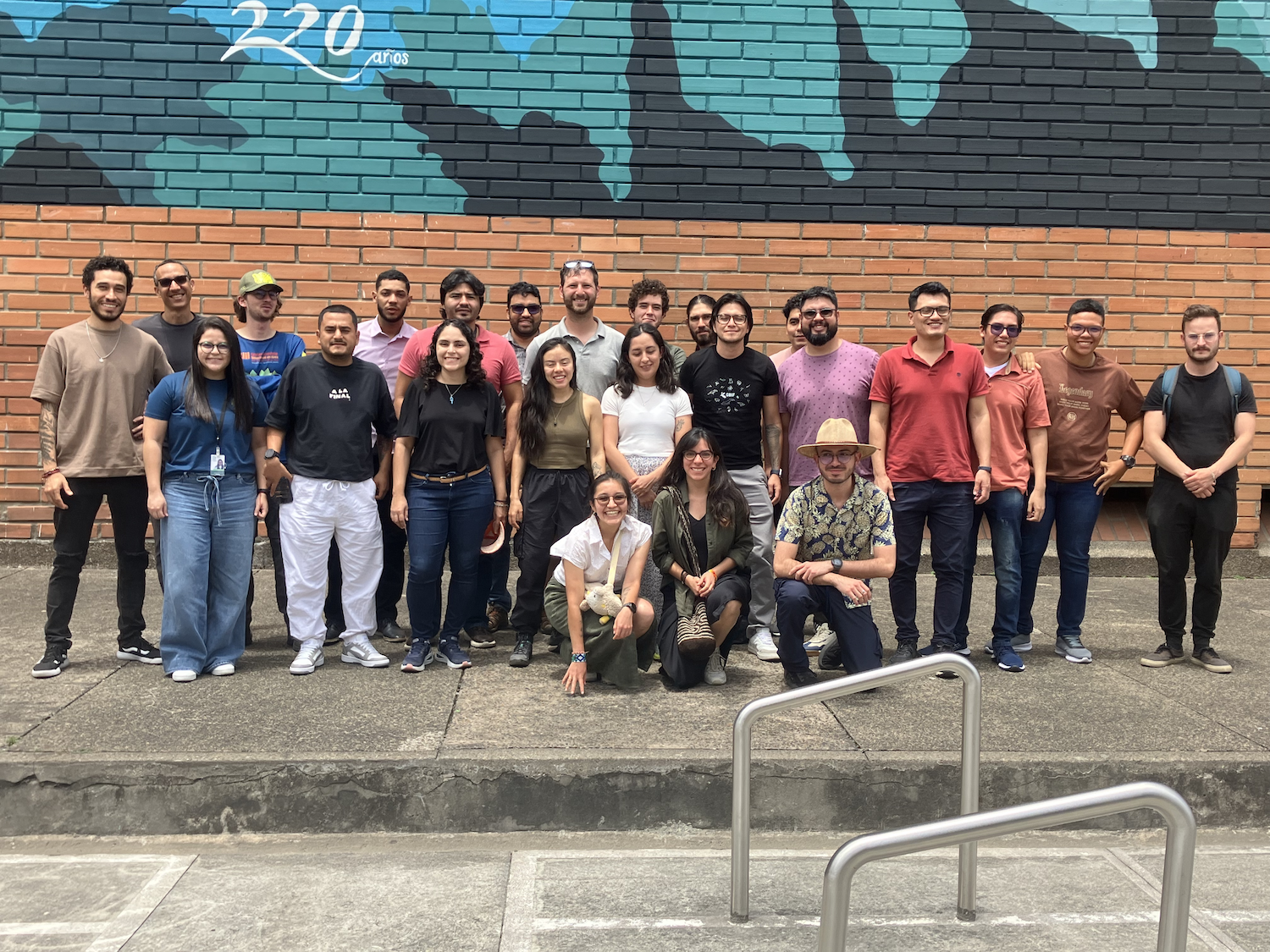
Global Science Data Management and AI Graduate Intern
18 April 2025 2:52pm
Enterprise Geospatial Undergraduate Intern
18 April 2025 2:50pm




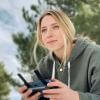

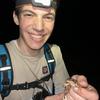



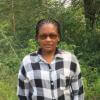






















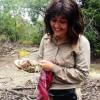
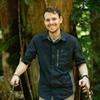




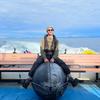








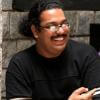


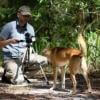

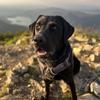


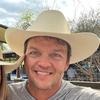

24 July 2025 9:01pm
Thanks for sharing this, Emily! Feel free to also add this as an event on WILDLABS so it appears on our community calendar.